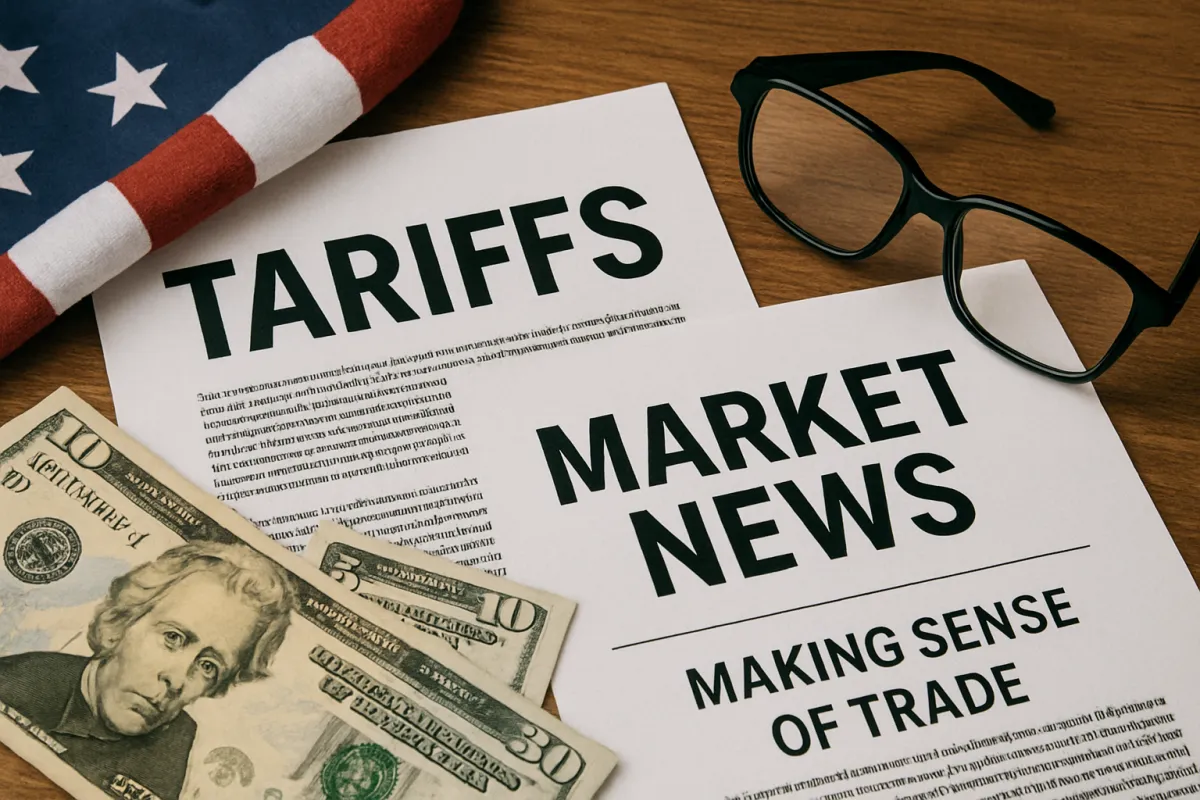
Less Bad is Good News? Making Sense of the Market in a World of Tariffs
If you’ve been watching the news, you’ve undoubtedly heard a lot of talk about tariffs, trade, and what it all means for the economy and the stock market. It’s the kind of noise that can make any investor feel a bit anxious, especially when you’re in or near retirement.
So, let's talk about what’s happening. The U.S. has been shifting its trade policy, leading to new tariffs on goods coming into the country. While new agreements have been reached with the European Union and Japan, they still involve a 15% tariff on many of their exports to the U.S. A few months ago, news like that might have sent the markets tumbling.
Yet, investors seemed to react favorably. Why the disconnect?
It seems to come down to a simple idea: the outcome was less bad than what many had feared. The initial tariff threats were much higher, so the final agreements felt like a relief to the market. With some of the uncertainty removed, fears of a destructive, all-out trade war have faded.
Who Really Pays for Tariffs?
This is the multi-trillion-dollar question. When a tariff is placed on a product, who absorbs that extra cost? As Federal Reserve Chair Jerome Powell recently explained, that cost gets spread across a whole chain of people: the manufacturer, the exporter, the importer, the retailer, and finally, the consumer. Each one tries to avoid paying for it, but ultimately, the cost has to land somewhere.
So far, it seems that large companies have been absorbing most of these costs themselves, rather than passing them directly on to you at the cash register. That may not be sustainable forever, and it’s certainly tougher for small business owners, but for now, it has kept a lid on price inflation from tariffs.
Reasons for Optimism in the Market
Despite the noise around trade, the stock market has been surprisingly resilient. After a dip in the spring, both the S&P 500 and the Nasdaq hit new highs in July. This suggests that investors are not convinced that tariffs will seriously damage the economy right now.
When I look at the broader landscape, I see several positive factors that are helping support the market as we head into the fall:
The economy continues to expand.
Corporate profits are on the rise.
Long-term bond yields have remained relatively stable.
The Federal Reserve has kept the door open for potential interest rate cuts later this year.
Businesses appear to have weathered the initial shock of the tariff announcements.
The excitement and innovation around Artificial Intelligence (AI) continues to be a major driver of growth.
It's my job to watch for storms on the horizon, but it's also important to acknowledge when the sun is shining. While the trade situation is something we must continue to monitor, there are plenty of reasons to feel confident in the foundation of the economy and the markets right now.
I trust you’ve found this review helpful. Navigating these headlines is a key part of our work together, ensuring your financial house stays strong regardless of the political weather. If you ever have questions or want to talk through what you’re seeing in the news, please give me a call.
